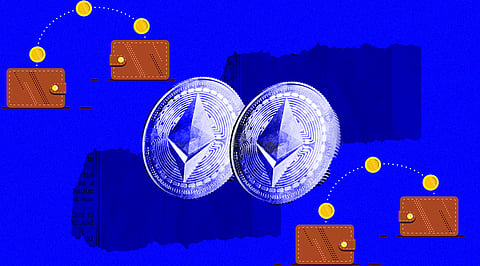

Ethereum might be one of the most popular blockchain networks but the ETH blockchain has several scaling issues, and ETH developers have launched Ethereum rollups to alleviate these issues. Not just scaling problems, Ethereum also has issues with transaction and gas fees. It's quite a well-known fact, that Ethereum transaction fees are quite expensive, which makes investors look for other investment options. These high transaction fees are some of the main reasons why the 'Ethereum killers' have gained so much popularity. Accompanied by these issues, the year 2022, had been extremely difficult for Ethereum and its investors. But there is still a ray of hope as the ETH 2.0 upgrade is about to be launched in Q3 2022. But for Ethereum to remain relevant in the market, its developers have to work on the ETH transaction fees and gas fee issues. Gas fee still remains a problem in 2022 and investors are growing increasingly tired of them. Following these issues, ETH developers have issued several programs that are aimed to resolve these problems. Recently, the Ethereum rollups are making strides in the investor community as it resolves some of the most critical problems of the crypto.
To introduce a way to reduce these fees and increase transaction efficiency, developers have introduced a new solution. A rollup takes multiple Ethereum transactions and rolls them up into a single piece of data before submitting them all to the blockchain. This process not only saves space, but also increases transaction speed, and reduces the cost to transact. In technical terms, rollups are layer 2 scaling solutions that execute transaction operations off the primary ETH blockchain, but still, post the transaction data onto layer 1.
Ethereum rollups can cut transaction costs. Generally, the cost of an Ethereum transaction, along with the small cost of rolling up batches of ETH transactions are all split among its investors. This process speeds things up since the blockchain would require only a single process of the transaction rather than several others.
Ethereum rollups are a new form of a solution, so investors should be aware of the different types of ETH rollups and use them accordingly. There are basically two types of rollups, namely, optimistic and ZK.
Optimistic rollups check if the transaction data submitted to the Ethereum network is correct and valid. Whenever there is an invalid transaction, the network generates a dispute resolution. If either of the parties faces misconduct charges, they lose their ETH investments. Similar steps are taken whenever either of the parties or any third party reports a fraudulent transaction on the main Ethereum network. Opposing the optimistic rollups, ZK uses a clever piece of cryptography zero-knowledge proof. Every batch of ETH transactions is submitted through a cryptographic proof called a SNARK, verified by either of the contracts that are deployed on the ETH main network. In this process, the valid proof of the transaction is stored on the ETH network itself, rather than creating the bulk of transaction data. Hence, this is a quicker and cheaper option.
Ethereum developers are trying really hard to make sure that they resolve all the issues that are contained within the network. Since Bitcoin is currently exceptionally down, ETH developers are trying to best utilize this opportunity and make Ether the largest cryptocurrency in the market. Nevertheless, it kind of seems obvious that before the final reveal of the ETH 2.0 blockchain, almost all the critical issues of Ether will be resolved and Ethereum rollups will become a huge part of this plan.
Join our WhatsApp Channel to get the latest news, exclusives and videos on WhatsApp
_____________
Disclaimer: Analytics Insight does not provide financial advice or guidance. Also note that the cryptocurrencies mentioned/listed on the website could potentially be scams, i.e. designed to induce you to invest financial resources that may be lost forever and not be recoverable once investments are made. You are responsible for conducting your own research (DYOR) before making any investments. Read more here.
